- Home
- Robin Cook
Cure (2010) sam-10 Page 10
Cure (2010) sam-10 Read online
Page 10
Laurie picked up her phone and called Detective Ron Steadman at the Midtown North Precinct. If anyone was going to learn anything about her corpse, it was going to be the detective, as it was his job as part of the police department’s Missing Persons Squad to actually actively investigate the case. How that was specifically done, Laurie didn’t know, as she’d never been inclined to look into the process. Now she felt differently and hoped to find out.
After ten rings, which she’d actually counted, Laurie began to become discouraged anew. Her experiences calling police precincts for information were always a difficult affair, where all too often the phone would ring interminably. Forcing herself to be patient, Laurie let it ring. Finally, on the twenty-third ring, and just when she was about to try the other number, someone answered, and to her shock it was Ron Steadman. Usually with the NYPD she had to leave a name and hope for a callback, which she’d get about fifty percent of the time.
Any hope for a dynamic individual faded the moment she heard the man’s voice. He sounded as if he was exhausted by merely breathing. Laurie explained who she was and why she was calling, and when she finished, there was a silence on the other end of the line that seemingly was to extend indefinitely.
“Hello!” Laurie said, thinking the connection had surely broken. Instead, it seemed the man had fallen asleep. At least, that was Laurie’s guess.
“What was that again?” Ron said without apology.
Laurie told herself to take the situation in stride, and she took her own advice. Speaking more slowly and more clearly, she repeated the message.
“We have the case,” Ron responded. His voice was flat.
“Good!” Laurie said. “What’s happened so far?”
“What do you mean what’s happened? I copied it to your guy, what’s his name?”
“Sergeant Murphy.”
“Yeah, that’s the one. I copied it to him while I sent it down to One Police Plaza to Missing Persons, along with the responding officers’ description.”
“And what has Missing Persons done?”
“Not much would be my guess. I suppose they’ve added it to the list.”
“The list of missing persons, I suppose?” Laurie responded sarcastically. Somehow she couldn’t believe what she was hearing. The man sounded totally disinterested.
“No. We got a list of people wanting to be extras in TV cop shows. Of course the case was added to the missing-persons list.”
“And as the assigned detective to the case,” Laurie said with more sarcasm, “what have you done during this critical period?”
There was another short silence until Ron said, “Look, lady, I don’t know why you are busting my balls. I send the info where I’m supposed to send it and then sit back and wait.”
“Wait for what?”
“I wait for you to send us some prints, photos, and whatever you get from the autopsy, including DNA info, so that we can improve on the description. The prints we’ll run locally. If no hits, we run on the state level on up to the federal. But I gotta warn you, we don’t get many hits in this kind of case. It’s up to the family to come to you guys or us. Now, if there had been criminality involved, things would be done differently.”
“How do you know there was no criminality?”
There was another short period of silence. “Are you trying to tell me something by wandering all around the block or what? Did you find something at autopsy that suggests this was a homicide? If you are, please come right out with it.”
“Nothing was found at autopsy that suggested criminality,” Laurie admitted.
“Well, there you go. If anything changes let me know, and vice versa. Meanwhile, I’ll let it sit here with my other hundred cases.”
Laurie hung up the phone without responding to Ron’s last statement. It was clear to her that he intended to do essentially nothing in this initial phase of trying to come up with the identity of her case. Although frustrated, Laurie could understand such rationality. There really wasn’t much to be done at that juncture except hope that someone would come forward.
Rising up from her desk chair, Laurie picked up the collection of specimens for toxicological testing. The main test she was interested in was the BAL, or blood alcohol level test. There was something on the intuitive level that kept telling her it was going to be high. How high or the significance, Laurie didn’t know. As for the screen for all sorts of other drugs, chemicals, or toxins, Laurie felt it was important just to be complete. She felt the same about electrolytes as indirect evidence of possible metabolic disease, such as diabetes, but she wasn’t optimistic with the normal autopsy.
In years past Laurie had had a difficult relationship with the toxicology supervisor, John DeVries. John had been a cantankerous man permanently paranoid that the chief of OCME was forever denying him adequate funding yet demanding a first-rate lab. As it was often with such battles, there was right and wrong on both sides, so the problem was more a clash of personalities than anything else. The problem for Laurie was that, as with Maureen, she’d frequently come to the lab essentially asking that her cases get priority. She always wanted the results immediately, which always reminded John of his budget crisis, since he was always behind. He was so conscientious that on occasion he used his own money to buy needed reagents.
But 9/11 changed things. Not only did OCME budgets for all departments rise significantly with the challenge, but with the new building at 421 East 26th Street creating more space in the old, John’s lab metamorphosed from being totally inadequate to occupying two complete floors of the old building, and from using outdated equipment liable to failure to using the newest and the best. Coinciding with such upgrading, John’s personality went from grouchy and hotheaded to helpful and even genial. He’d also gone from wearing soiled and tattered lab coats reflecting what he thought of the financial state of his lab to new, clean, and pressed ones that he changed every day.
Laurie found him along with his assistant supervisor, Peter Letter-man, in his new corner office facing out south and east over the corner of First Avenue and 30th Street. The sunlight was dazzling even through partially closed miniblinds and hopelessly dirty windows.
As Laurie had yet to see the two men who now lorded over a bevy of lab technicians, she had to suffer through a warm greeting not only from John and Peter but also all the techs, who filed in at John’s request. More than half had been hired during the course of Laurie’s maternity leave, requiring formal introductions. It all took almost a half-hour.
“Well, what can we do for you?” John asked after all the techs departed. Laurie told her story about her John Doe and her plight of being unable to identify the man or provide a cause of death, much less a manner of death. She added that it had her quite upset.
John glanced at Peter, and both men raised their eyebrows questioningly.
“Why are you upset?” John questioned for the two of them.
“Because ...” Laurie began while glancing back and forth between John and Peter. But she didn’t finish. She suddenly felt embarrassed at why she’d made such an unprofessional admission.
“Well, it doesn’t matter,” John said, sensing Laurie’s discomfort. “What can we do for you?”
Laurie felt a wave of inappropriate emotion spread through her, accompanied by the horror that tears were not far behind. Sudden unexpected displays of emotion had been a mild problem since her teen years. She hated the tendency and considered it to be a personality flaw. Over the years it had improved dramatically as she’d gained confidence. Unfortunately, JJ’s diagnosis of neuroblastoma had brought it back with a vengeance. Just as it had been in her teenage years, she had little emotional control these days.
Both John and Peter were confused, watching Laurie struggle. Although they wanted to help, they didn’t know quite what to do.
Finally Laurie was able to get control of herself by taking a deep breath and letting it out forcibly. “I’m so sorry,” she said.
“No proble
m,” the men echoed.
“It is a problem,” Laurie admitted. “I’m sorry. I was so eager on this first day back to have everything go smoothly that now that it hasn’t, I feel unreasonably emotional.”
“Well, no harm done,” John said, trying to reassure Laurie. “I assume you have some samples for us.” He pointed to the brown specimen bag Laurie was clutching.
Laurie looked at the bag as if she’d forgotten she was holding it. “Oh, yes! I do have samples I’d like you to run. I need a toxicology screen and also a BAL.” She handed the brown bag over to John’s waiting hands.
“I suppose you want a rush on this like usual,” John asked, trying to lighten the atmosphere.
“That would be terrific,” Laurie said, wanting to get away. She was still embarrassed.
6
MARCH 25, 2010
THURSDAY, 11:10 a.m.
Ben climbed out of the cab in front of Michael Calabrese’s building. It was a new spire of granite and reflective glass a stone’s throw from Ground Zero. He signed in with security on the first floor, got a nametag that he stuck on the breast pocket of his jacket, and took the elevator up to the fifty-fourth floor.
Michael’s office arrangement was rather unique. He and a group of other individual financial wheeler-dealers shared the entire floor, paying rent only for the proportion of the square footage they occupied as a private office. As for the office help and office equipment, including secretaries, receptionists, copy machines, computer monitors, computer servers, janitorial service, and common areas, such as conference rooms and restrooms, they all paid a common fee based on month-to-month occupancy. The relationship created an opportunity for the individual practitioners to enjoy far better quarters and services than they would have if they were all on their own. They even had a full-time computer wizard in-house.
Ben went directly to Michael’s office. As the communal secretaries and receptionists were not close, Ben went to Michael’s open door and knocked on the jamb. Michael was on the phone, as he always was, tipped back in his chair with his feet up on the corner of his desk. Looking up, he used his free hand to wave Ben inside and motioned for him to take a seat on a black leather couch.
Ben took in the surroundings as he sat. It was immediately evident by the furnishings that Michael’s boutique placement firm was highly successful. The French polished mahogany walls gleamed with a finish that reminded Ben of his brand-new Range Rover. Various bronze knickknacks, including a large telescope on a tripod, shone like gold. On the coffee table was a black walnut humidor with a flush inset humidity gauge.
The office was a corner office with floor-to-ceiling walls of glass, not mere windows, as in Ben’s office, and a stunning view out over the Hudson River. To the left was the elegant Statue of Liberty, standing stolidly on her tiny island.
A loud burst of laugher brought Ben’s attention back to Michael. Although Ben tried not to listen to Michael’s conversation out of courtesy, he now realized Michael was talking to someone about Angels Healthcare, a company that had proven how much money there was to be made in the hospital industry. Angels Healthcare had been an early entry into the boom associated with surgical specialty hospitals in such diverse fields as cardiology, orthopedics, ophthalmology, and plastic surgery. By having no emergency rooms and servicing only the insured or paying patents and ignoring the truly sick, the noninsured, and those on Medicaid, such hospitals were moneymakers, and Angels Healthcare’s market value went through the roof. In fact, it was because of Michael Calabrese’s pivotal role in the initial stages of raising capital for Angels Healthcare that Ben had heard of him and his boutique investment firm, Calabrese and Associates.
Ben’s impression of Michael did not start out very well, as Ben had heard Michael had been indicted for a number of white-collar criminal activities and even one count of violent crime. But subsequently all charges had to be dropped because the evidence obtained by the police and the prosecutors turned out to have been tainted and had to be thrown out.
As soon as Michael had been absolved of any wrongdoing, Ben had scheduled a meeting with him to talk about iPS USA. From that very first tête-à-tête meeting, the two men had hit it off: Michael was enamored with biotech and had specialized in biotech start-ups, while Ben had extensive biotech experience and had come up with a terrific business plan of cornering the intellectual property associated with the commercialization of induced pluripotent stem cells. In many ways it was an ideal match, as they shared certain personality traits: Both were excessively vain in appearance and accomplishment, both were excessively competitive in work and play, both saw individual wealth as a crowning motivator, and both considered overly ethical behavior as a potential handicap in life’s journey.
As soon as his phone call was concluded, Michael’s feet dropped from the corner of his desk. He stood up, stepped over to Ben, and the two shook hands. “What’s happening?” Michael asked with his strong New York accent. He reached for a straight-backed chair and turned it around to sit on it backward.
Although Michael’s comment was more a figure of speech than a real question, Ben answered, “Not much,” but then quickly corrected himself: “Actually, a lot is happening.”
“Like what?”
Ben told Michael about the biotech journal and its article concerning the new method for increasing the formation of iPS cells by a hundred times.
“Is that significant?”
“Very significant. In fact, so significant I think I want to change what I came here to talk about.”
“You mean about giving the Lucia people and the Yamaguchi their walking papers?”
“Exactly,” Ben agreed. “I think we might want to buy this new company or at least exclusively sublicense the new process. We’ve been in negotiations with another company up in Worcester, Massachusetts, for their process to do the same thing, but their process is nowhere as efficient as this new one in San Diego.”
“What kind of money are we talking about,” Michael asked, “and how do you see doing it? As stock or as a bridge loan?”
“Stock if we decide to buy, and maybe as a bridge loan if we decide to exclusively sublicense.”
“How about the money. What are we talking about, approximately?”
“I’d say in the neighborhood of half a million if we sublicense, which is what I think we should do. At first I thought about buying, but it would be much more if we buy, and buying is more risky with how fast the technology is advancing.”
“After the signing yesterday,” Michael said, “I’d recommend we use stock whether we buy or sublicense. I can make a good case that our market value has gone up considerably.”
“You think our angels will go for it?”
“I don’t see why not. I know for a fact their business is booming, particularly in the gambling arena. They are virtually swimming in money.”
“I’ve never asked,” Ben said, “but something tweaks my curiosity about how their partnership works.”
“You mean between the Mafia and the Yakuza? It’s interesting you ask, because I had to ask as well. It’s actually quite simple. It’s the Lucia people who site, set up, and run the Italian restaurants that front the high-end gambling joints they have peppered around the Upper East Side. They’re also the ones who arrange for the women or whatever. It’s the Yakuza who find the clientele: mostly high-end businessmen from Japan, who, by the way, notoriously love to gamble. I mean really love to gamble. It’s also the Lucia people who provide the credit when and if needed, and it’s usually needed, as the Japanese clients more often than not run out of cash. As Japanese, they are encouraged to borrow as much as they want from the Mafia, with the understanding that they can pay back the loans on their next trip to New York. Of course, this affords the gamblers the opportunity to borrow much more than they ordinarily would, because they have the mistaken idea that, if needed, they can avoid ever repaying by never returning to NYC. But here’s where the partnership really works. The grossly in-deb
t Japanese businessman then returns to Japan, where he believes he is immune from the Mafia. But he soon learns that that’s not the case. It is the Yakuza who collect, and the Yakuza are very good at collecting, as they can be extraordinarily violent. The Yakuza then share the take with the Mafia, often in crystal meth, not cash. It is a very lucrative setup for both sides.”
Ben shivered with the thought of what a nasty surprise that would be for an unsuspecting Japanese businessman.
“So, let’s go over this again so there is no misunderstanding,” Michael said. “You want me to go to the Lucias’ capo, Vinnie Dominick, and Yamaguchi-gumi’s saiko-komon, Saboru Fukuda, and talk about increasing their stake in iPS USA even though just yesterday afernoon you were talking about sidelining them. Are we on the same page here?”
“Yes, unless you have another potential angel investor?”
“I have a couple of people I could go to, but I think it’s better to stay with what we got.”
“You’re the placement agent, not me!”
“I’m actually glad that you’ve changed your mind.”
“How so?” Ben questioned.
“I was worried you were coming in here this morning to insist on my going to them and telling them they were being demoted to garden-variety investors.”
“It will have to happen, but just not now,” Ben said. “But it will have to be before any IPO. Due diligence might bring it out in the open.”
“I think you’re being a bit naïve. You don’t tell either one of these guys what to do and what not to do.”
“I fully plan to reward them with extra stock for the role they’ve been playing.”

 Shock
Shock Mutation
Mutation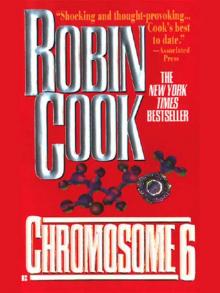 Chromosome 6
Chromosome 6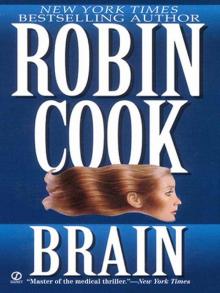 Brain
Brain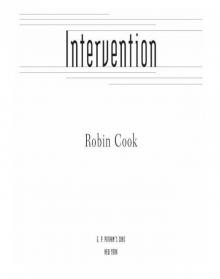 Intervention
Intervention Invasion
Invasion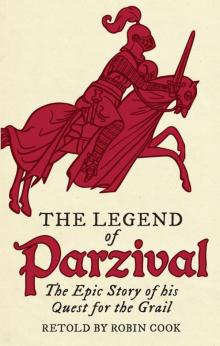 The Legend of Parzival: The Epic Story of His Quest for the Grail
The Legend of Parzival: The Epic Story of His Quest for the Grail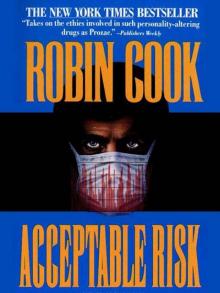 Acceptable Risk
Acceptable Risk Cell
Cell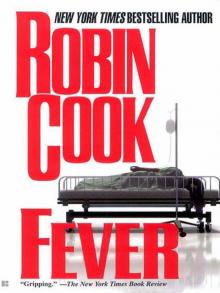 Fever
Fever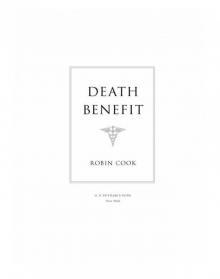 Death Benefit
Death Benefit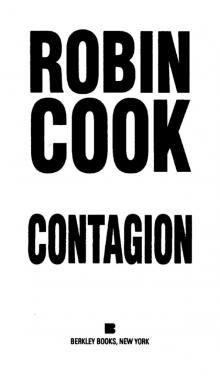 Contagion
Contagion Mindbend
Mindbend Coma
Coma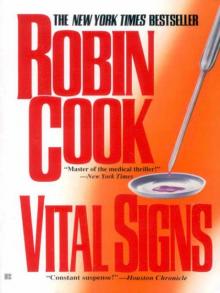 Vital Signs
Vital Signs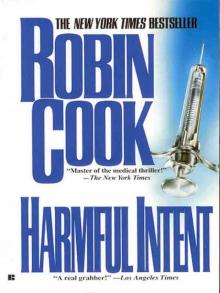 Harmful Intent
Harmful Intent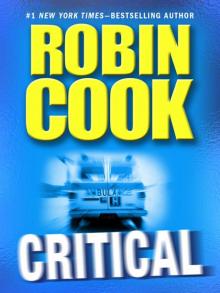 Critical
Critical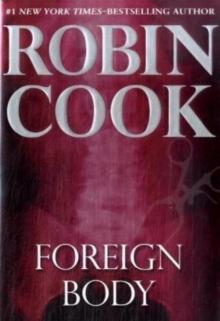 Foreign Body
Foreign Body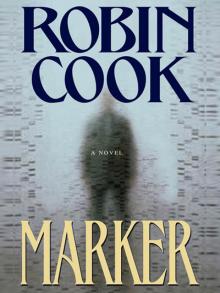 Marker
Marker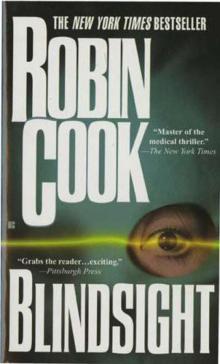 Blindsight
Blindsight Terminal
Terminal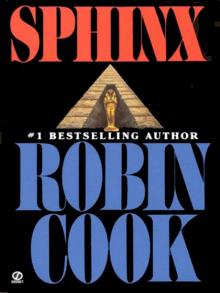 Sphinx
Sphinx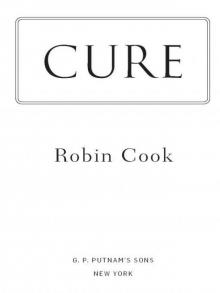 Fatal Cure
Fatal Cure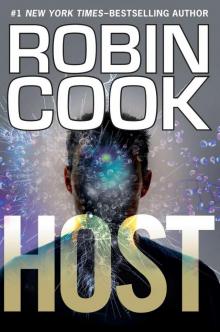 Host
Host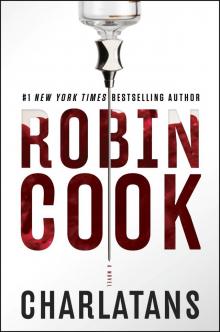 Charlatans
Charlatans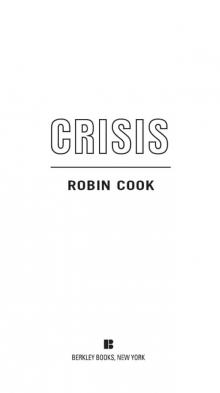 Crisis
Crisis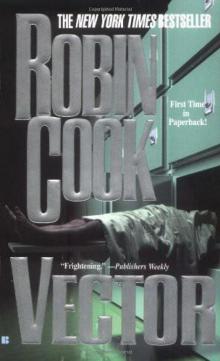 Vector
Vector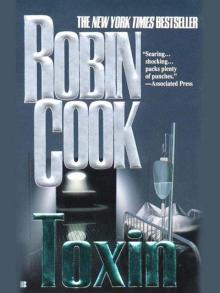 Toxin
Toxin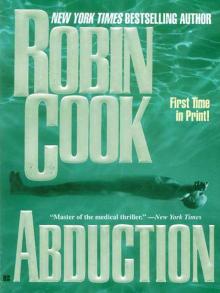 Abduction
Abduction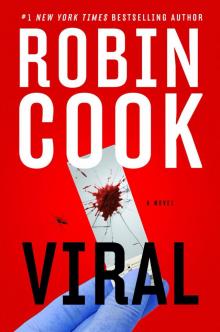 Viral
Viral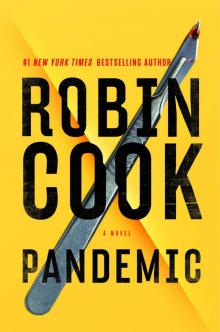 Pandemic
Pandemic Outbreak
Outbreak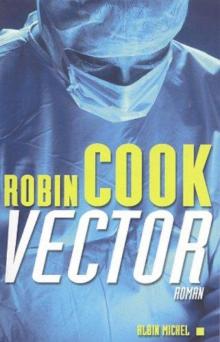 Vector js&lm-4
Vector js&lm-4 Godplayer
Godplayer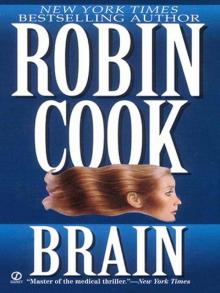 A Brain
A Brain Year of the Intern
Year of the Intern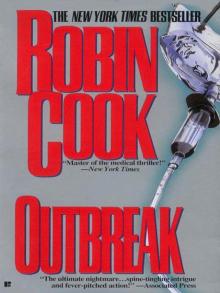 Outbreak dmb-1
Outbreak dmb-1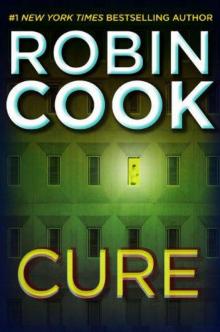 Cure
Cure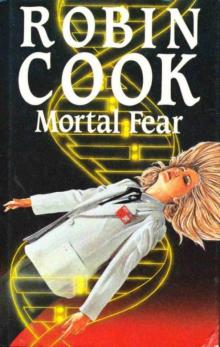 Mortal Fear
Mortal Fear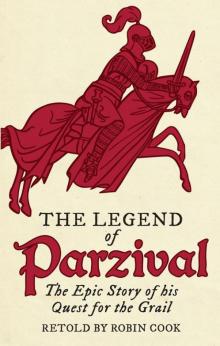 The Legend of Parzival
The Legend of Parzival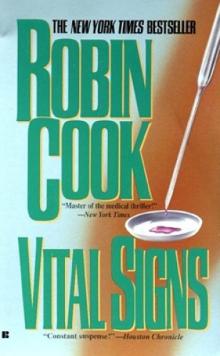 Vital Signs dmb-2
Vital Signs dmb-2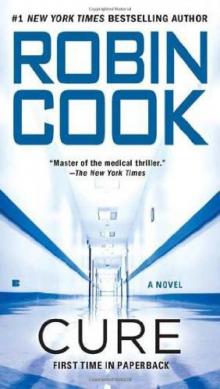 Cure (2010) sam-10
Cure (2010) sam-10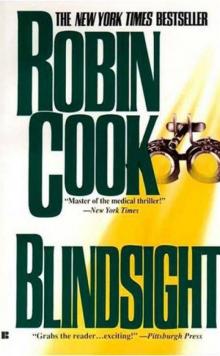 Blindsight sam-1
Blindsight sam-1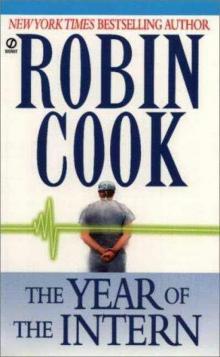 The Year of the Intern
The Year of the Intern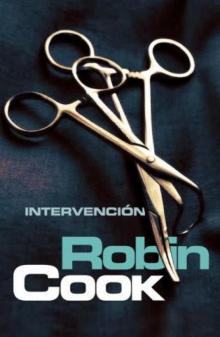 Intervention sam-9
Intervention sam-9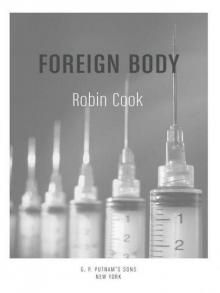 Foreign Body sam-8
Foreign Body sam-8